
Perhaps this has happened to you. You go to buy something at the store. It's been a busy week, so you haven't been watching your bank balance as closely as you should. The cashier rings you up. You swipe your check card and the cashier says, “It didn't go through. Do you have another card?” What happened? A check card draws money from your checking account, so your balance must have dipped too low to pay for your purchases. It happens.
Well... not anymore, it doesn't.
I switched my checking account to Bank of America a few years ago when I refinanced my adjustable rate mortgage into a home equity line. Back then, my credit was solid and it seemed like it would be easier to have my checking account within easy reach of my second mortgage and my Bank of America credit card. And like my other bank, Bank of America sent me a check card so I could make purchases with the ease of a credit card, minus all those pesky finance charges.
The first time I received an overdraft fee, I didn't think much about it. When you buy gas, the charge doesn't always show up right away and if you forget to keep track of your pending charges, sooner or later you're going to overdraw the account, especially if you're living paycheck to paycheck. The fee was hefty, but it was a small price to pay to make sure my charges were covered. Bank of America would have commended me for my attitude.
Then things started getting tight between paychecks, with more and more checks and charges floating around, and I started getting negative balance numbers that looked strangely plump. I thought maybe someone over the internet had stolen my account number, but the charges were all mine. In fact, I'd made several of them that same day. Twenty dollars here, six dollars there, twelve dollars somewhere else... and even though the balance must have been precariously low when I made the first of the three transactions, I was sure that the other transactions should have been declined. Furthermore, the fact that those two had gone through after the account dipped below zero meant that Bank of America had assessed another $70 in overdraft fees.
If I went to an ATM and tried to withdraw the same amount of money, Bank of America would have checked the balance and said, No dice. If I used my check card, on the other hand, it would authorize the charge regardless of whether or not I had money in my checking account. What mad, tortured logic was this? I could understand having to pay a fee when one too many floating charges collided because I hadn't been keeping a balanced checkbook. What I couldn't understand was how transactions kept getting approved after my account dipped below zero. It didn't make any sense.
My first credit card was a Capital One gold card, offered to me when I was still in high school. It had a $2000 dollar limit back then, and I can remember the exact moment that I reached that limit because the cashier handed it back to me and said, “It was declined, sir.” I'd gone over the limit and couldn't use the card any more. There was an over-the-limit fee and everything. I don't recall how far I'd gone over the limit, but it didn't take more than a single payment to get me back to $2000. One thing I remember very clearly was calling to ask Capital One whether I would be assessed another fee if the finance charges pushed the balance back over the limit. The customer service rep told me, “No, as long as you don't make any charges while you're over the limit, there won't be any more over-the-limit fees.”
It seemed logical to me. If I was to be penalized for using the card when my available balance was too low, that was fair, but if the credit card company could stack fees on top of each other until I got another over-the-limit fee, that was ridiculous. What Bank of America was doing with my check card charges seemed equally ridiculous.
In a single month, Bank of America charged me $350 in overdraft fees, spread out over ten separate charges. Many of these charges should have been declined in the first place, but I was noticing something else. Bank of America had an ugly habit of clearing charges in order from largest to smallest, often draining the account with the first charge and causing multiple overdrafts when clearing them in order would have overdrawn on only the largest transaction. This policy was the source of class action lawsuit against Nationsbank, which became Bank of America, that was settled in 1999. Since then, they've been informing new account-holders of the policy per the settlement agreement, but I don't recall being told about the policy by the manager who set up my account. I'm sure it's in the stack of papers he gave me to sign, or in the folder full of pamphlets I didn't have time to read after the account was processed.
The check clearing policy, however underhanded, is now an industry standard. Most banks will clear your largest checks first, claiming that this is “for your own good.” You want your mortgage payment to go through, don't you? What they don't say is that the three or four smaller transactions after the mortgage payment will go through as well, to the tune of $140.
From the Bank of America website:
Though the Bank of America Visa Check Card is accepted nearly anywhere VISA Cards are accepted, it's not a Credit Card and it's not tied to a line of credit.
Fair enough, but if it's not really a credit card, why do so many transactions go through after you overdraw your account, sometimes days after your account has fallen to a negative balance?
Bank of America
explains their methodology:
We charge an overdraft fee when we pay a check or other withdrawal even though you don't have enough available funds in your account to cover these transactions.
In some circumstances, Bank of America may choose not to pay the check or other withdrawal. In this case, we will return it to the payee as unpaid, and may charge an Insufficient Funds Fee.
So, if they decide to pay the charge that should have been declined, they assess a fee. If they decide not to pay the charge, they also assess a fee. That's a pretty profitable arrangement. How exactly do they decide whether or not to pay a fee? Is it even possible to drop so far into negative numbers that your check card will be declined?
A few months ago, I found out the limits of Bank of America's largess when a series of overdrafts and the accompanying fees brought my account balance hundreds of dollars into the negatives. Knowing that the paycheck that would be direct deposited would be eaten up by the negative balance, I had no choice but to keep using the card to buy food and gas, each time watching yet another $35 fee join the transaction. $50 in gas? Let's just call it gas and a short term loan. A $35 fee for every purchase would be criminal if it was actually a finance charge, something akin to what a loan shark might charge, but I didn't have any choice if I wanted to gas up my car to go to work.
It seemed like they were willing to pay on anything as long as they could attach another overdraft fee, so I took one final look at my balance, $-643 and change, and I paid my electric bill. To my astonishment, the transaction was actually approved. I really hadn't expected it to work. A few days later, Bank of America changed its mind about this act of extreme generosity and canceled payment, charging me both the original overdraft charge, as well as the returned item fee.
Remember that thing I mentioned about their “biggest items first” policy, and how it was for my own good? I didn't use the card any more after that, but I forgot about a monthly membership charge that automatically debits the checking account in the amount of $9.96. That charge went through AFTER they declined to pay the debit to the electric company, and it was approved and paid, with the standard $35 overdraft fee tacked on, of course.
The policy of letting transactions go through even after an account's available balance reads $0.00 has become standard in the industry, and it's not even limited to check cards any more. My wife used a SunTrust debit card to buy about $50 worth of groceries last night, entered the PIN number at the Publix register, received approval and went home thinking that the charge was covered by money in the account, only to find a negative balance in the morning and a returned check fee.
Labels: bank_of_america, banks, check_cards, credit_cards, debit_cards, Edible_Consumer, loans, overdraft_charges, SunTrust
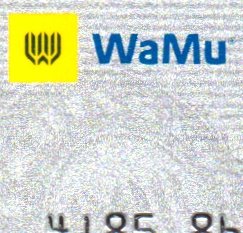 I hadn't used my WaMu credit card since the first quarter of 2006. Back then, it was a Providian credit card. But then Washington Mutual (WaMu) bought Providian, and, just recently, Chase bought WaMu.
I hadn't used my WaMu credit card since the first quarter of 2006. Back then, it was a Providian credit card. But then Washington Mutual (WaMu) bought Providian, and, just recently, Chase bought WaMu.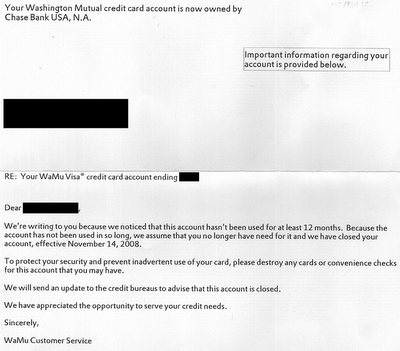

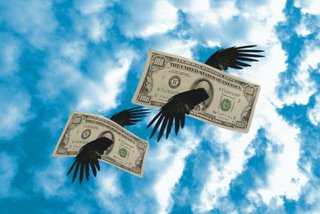


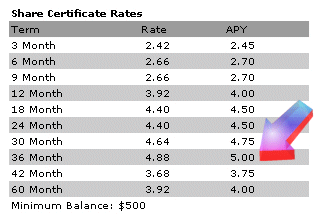

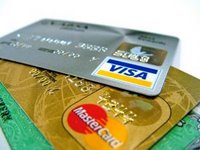


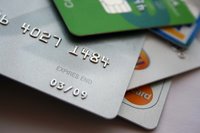
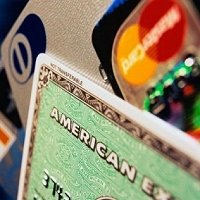
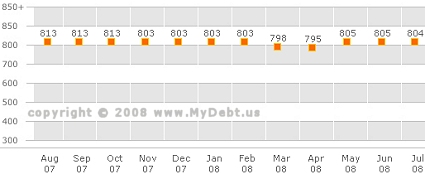
 So, the good folks at Discover Financial want us believe that
So, the good folks at Discover Financial want us believe that 
